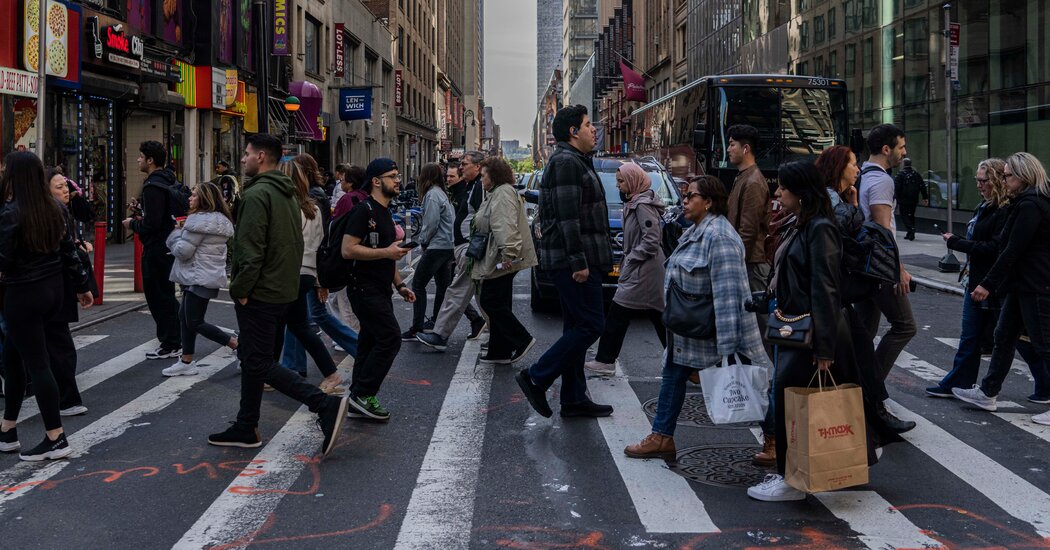Americans’ revenues and spending rose in April, a sign of economic resilience amid rising prices and warnings of a possible recession.
Consumer spending rose 0.8 percent in April, the Commerce Department said on Friday. The rebound followed a two-month slowdown in spending and exceeded forecasters’ expectations as Americans spent money on cars, restaurant meals, movie tickets and other goods and services.
After-tax income rose 0.4 percent, fueled by a strong labor market that continues to drive up wages and put more people into work. Data from the Labor Department this month showed that Americans in their best working years in April had their highest rate of employment in more than two decades.
Separate data released Friday by the US Department of Commerce showed that a key measure of business investment also picked up in April, a sign that business leaders do not expect a major slump in demand in the coming months.
Consumer resilience is a mixed blessing for Federal Reserve officials, who are concerned that robust spending is contributing to inflation, but who also don’t want inflation to slow so quickly that the economy will slide into recession. The gradual slowdown in spending over the past few months is broadly in line with the “soft landing” scenario that policymakers are aiming for, but they were hesitant to declare victory too early – a concern that April’s data, which showed a sustained inflation alongside stronger spending.
“The likelihood of a recession dropped again,” Robert Frick, a business economist at the Navy Federal Credit Union, wrote in a letter to clients Friday. “The only problem from the report is that inflation remains stubbornly high and could tempt the Fed to raise Federal Funds rates even further while there was a pause on the table,” he added, referring to the next meeting of policy makers in June.
It is unclear how long consumers can continue to support the economic recovery. The savings some households have accumulated during the pandemic are starting to wane and there are signs that companies are starting to pull back on hiring. The deadlock over the debt limit could further undermine the economy’s momentum, though there were signs Thursday night that Washington leaders were closing in on a deal to avoid bankruptcy.

